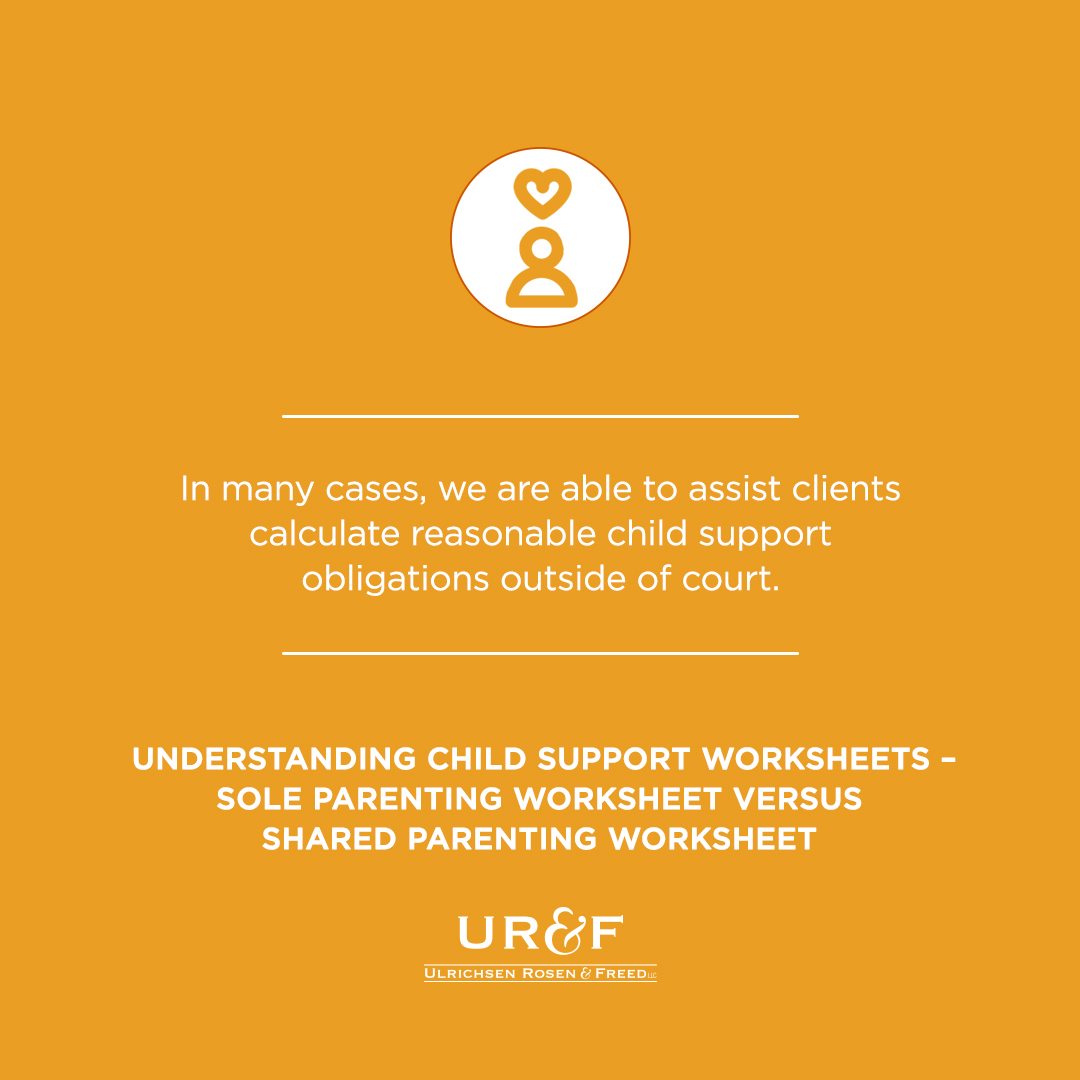Understanding Child Support Worksheets – Sole Parenting Worksheet versus Shared Parenting Worksheet
In New Jersey, the New Jersey Child Support Guidelines (“the guidelines”) must be used as a rebuttable presumption to establish and modify child support orders. R. 5:6A. The guidelines are a calculation performed on worksheets, which provide the Court with the appropriate level of child support.
Multiple case-specific variables are used to calculate child support. However, the most important information is the parents’ gross incomes and the number of overnights that the child(ren) spends with each parent. Once those major factors are plugged in, other factors such as a parent’s mandatory retirement contributions, mandatory union dues, work-related childcare expenses, and the child’s portion of healthcare premiums paid by a parent, and some other variables, can also be plugged in, which will adjust the ultimate child support award.
The formula related to the guidelines adjusts depending on whether the child(ren) in a post-divorce family live almost exclusively in one parent’s household, versus “shared-parenting arrangements” where the child(ren) spend significant time in each parent’s household. In the former circumstance, a “sole parenting worksheet” is generally utilized, while in the latter, a “shared parenting worksheet” is generally used. The difference in these calculations is based on the Court’s recognition that Parents of Alternate Residence incur certain categories of child related expenses in shared parenting situations that they generally do not incur in sole parenting situations.
The guidelines provide that the demarcation line for when the shared parenting worksheet is used is when the parent of alternate residence “has or is expected to have the child for the substantial equivalent of two or more overnights per week over a year or more (at least 28% of the time) and the [parent of alternate residence] can show that separate living accommodations for a child are provided during such times (i.e., evidence of separate living accommodations maintained specifically for the child during overnight stays).” Pressler & Verniero, Current N.J. Court Rules, Appendix IX-A to R. 5:6A, www.gannlaw.com (2020).
Examples of both sole and shared parenting worksheets are provided below. Both worksheets show information pertaining to the Parent of Primary Residence/Custodial Parent in the initial column, information pertaining to the Parent of Alternate Residence/Non-Custodial Parent in the second column, and combined information in the third column. The dollar amounts indicated are weekly amounts. Both examples include certain information that remains consistent across each example worksheet, as follows:
(a) Parent of Primary Residence’s income is set at $50,000 gross per year, or $962 gross per week; and the Parent of Alternate Residence’s income is set at $100,000 gross per year, or $1,923 per week (line 1 of each worksheet);
(b) The Parent of Primary Residence is making $75 per week Mandatory Retirement Contributions (line 1a of each worksheet);
(c) The Parent of Primary Residence is making $25 per week payments of Mandatory Union Dues (line 2b of each worksheet);
(d) The Parent of Primary Residence is paying $5,000 per year of work-related childcare (page 3 of each set of worksheets, and the credit for same is reflected on line 9 of the sole parenting worksheet and line 16 of the shared parenting worksheet); and
(e) The Parent of Alternate Residence is paying $50 per week for the children’s portion of healthcare premiums (line 17 of each worksheet).
The only aspect that is different across the examples provided is the number of overnights that the children spend with the Parent of Alternate Residence. The sole parenting worksheet considers a parenting plan in which the children spend 52 overnights per year, or 1 overnight per week with the Parent of Alternate Residence (line 20a). This results in the Parent of Alternate Residence having a child support obligation in the amount of $284 per week (lines 21 & 27).
The shared parenting worksheet considers a parenting plan in which the children spend 104 overnights per year, or 2 overnights per week with the Parent of Alternate Residence (line 9). This results in the Parent of Alternate Residence having a child support obligation in the amount of $230 per week (lines 29 & 35).
These examples are meant to help provide a basic understanding of the information going into most child support awards in New Jersey. Of course, this is only a simple explanation and many factors can influence the level of child support ultimately awarded. In some cases, the Court may even be persuaded that the child support guidelines should not apply due to unusual circumstances.
The attorneys at Ulrichsen Rosen & Freed LLC have tremendous experience understanding the thinking behind child support awards in this state. In many cases, we are able to assist clients calculate reasonable child support obligations outside of court, to assist in negotiating or mediating cases involving children. In other cases, we have litigated to ensure the inputs underlying child support awards are properly considered. If you have questions about these and other New Jersey family law issues, contact us for a consultation.


